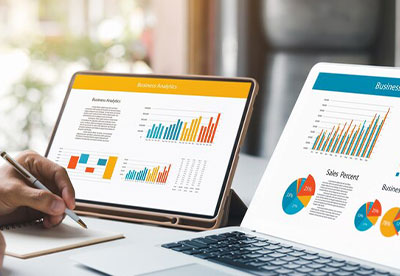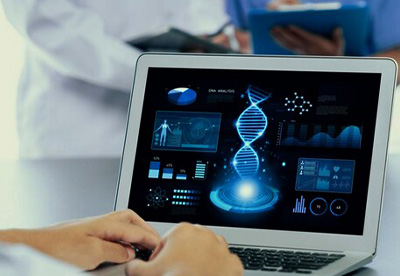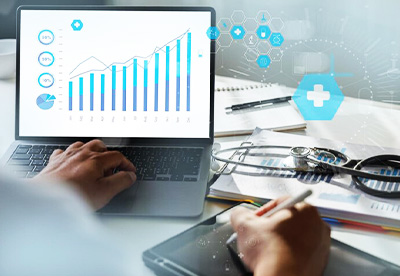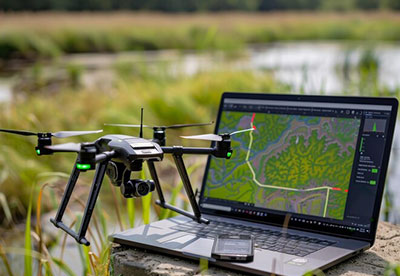IoT is not a new term, we use various IoT products in our daily lives to make things more convenient and productive. For example, smart refrigerators, connected cars, wearable health monitors, and Smart home assistants are already IoT products. However, beyond consumer applications, IoT holds immense potential for transforming sectors such as agriculture.
As per Statista, the IoT market is anticipated to grow at an annual growth rate of 12.57% (CAGR 2024-2028), resulting in a remarkable market volume of US $2,227.00 bn by 2028.
The agriculture sector can be automated and transformed with IoT applications. While the sector has gradually started adopting some technologies for having better control over growing crops and livestock, still there is much scope to achieve that level of automation which can help make better decisions and bring efficiency. The reason contributing to the low adoption of IoT, specifically in this sector, is due to the low farmer incomes and large-scale tenant farming in the pre-harvest stage, while organized sectors like warehousing and processing saw higher rates of adoption.
The application of IoT sensors can help farmers make informed decisions through better agricultural practices. In this blog, we will witness IoT user cases in agriculture and how they can help in moving toward smart agriculture.
Better Crop Management
The application of IoT technology can help enhance crop management by offering real-time data. Certain IoT sensors can help farmers make better decisions, for instance, soil moisture sensors can track the moisture content of the soil to help farmers in planning irrigation schedules and prevent over or underwatering. In the same way, light sensors can measure the intensity and the time duration of light exposure, to help farmers understand the plant growth patterns. Other enormous sensors can ease the work, such as pest detection sensors, and nutrition sensors can facilitate getting valuable insights into crop conditions.
Livestock management
Adopting IoT technology can help farmers monitor, track, and take care of animals better by attaching IoT sensors to animals to track their body temperature and activity levels. If there is any deviation from normal readings, it gives notifications to prevent illness or injury promptly. Additionally, GPS or tags backed with IoT can track the movement patterns of animals. It helps farmers locate lost animals and prevent their theft or related activities.
Drones in agriculture
Unmanned aerial vehicles or drones are one of the promising IoT products that not only help in surveillance but also contribute to precision agricultural practices. For instance, with drones, farmers can monitor farm and crop conditions and make weather predictions. Not only this, but labor costs can also be optimized as drones can keep a regular check on crop conditions and nutrition deficiency can be detected at an early stage. Thus, the application of drones religiously contributes to smart farming practices.
Automated Machines and Robots
Automated machines and the utilization of robots significantly contribute to precision farming. Robots assist farmers in several tasks such as monitoring, planting, harvesting, and whatnot, that can operate without human intervention. Automated tractors that are equipped with AI technology can run without drivers and minimize labor costs. It can plant seeds with accuracy, resulting in better farming precision and greater yields. Such robots can be optimized to do repetitive, challenging, and labor-intensive tasks.
Smart Greenhouses in Agriculture
To track several environmental factors such as light levels, CO2 levels, temperature, and humidity, IoT sensors can be deployed throughout the greenhouse. But how do farmers access this? Farmers can remotely access data in real-time with their mobile phones and can monitor conditions within the greenhouse. The data collected from the IoT sensors facilitates gaining insights regarding environmental conditions and thus farmers can optimize resource allocation to maximize farm yields.
Final Words
Agricultural sectors just like healthcare, retail, or any other industry, hold enormous scope that can be automated with machine intelligence and IoT products. The application of IoT in agriculture can bring revolutionary changes in agricultural fields by analyzing big data in agriculture to maximize operational efficiency.
The application of IoT products can vary from farm to farm depending on environmental conditions, climate, and region. Sometimes, a tool you might think can be optimum for your field might not generate the expected results and you might need a tailored IoT solution for your agricultural field. Canopus Infosystems can assist you in transforming your agricultural field by developing agriculture-based software that meets your specific needs and objectives. Our team of experts has the necessary experience to provide you with the best solution.
3 mins read


















